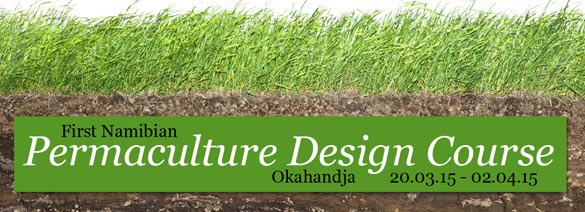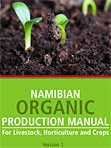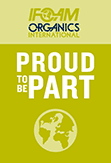
Join the Namibian Organic Association, as we walk with you on a life-changing, two week Permaculture Design Course.
Download the full course information here...
Download the course registration form here...
What is Permaculture?
The ultimate purpose of Permaculture (or “permanent culture”) is to develop a site until it meets all the needs of its inhabitants, including food, shelter, fuel, and entertainment. Bill Mollison and David Holmgren, two Australians, first proposed the concept of Permaculture in the mid 1970’s, an internationally accepted methodology taught in tertiary institutions.
Permaculture provides a means whereby individuals, groups and communities can empower themselves to develop sustainable human settlements, from deserts to the tropics, to rebuilding war torn communities - all based on proven ecological patterns and principles.
The course will follow the core Permaculture Design Curriculum, used internationally, covering design and practices for human environments, from homes right through to extensive wildlife areas. Using the Five-Rand Informal Settlement in Okahandja, for putting Permaculture into practice, participants will actively create their own Permaculture Designs for these two environments and implement some of the strategies.
Dates: 20 March – 2 April 2015
Venue: Okahandja (TBA)
Who should attend?
The course is appropriate for anyone who has the desire to design and practically implement resilient regenerative futures, and from all walks of life.
- People interested in design of sensible human and environmentally friendly habitats starting with our homes and rural communities
- People interested in growing their own food – in urban or rural settings
- Small-scale or large-scale farmers producing food for the formal and informal market
- NGOs supporting food security projects
- Extension officers, agricultural advisors, community helpers
- Gardeners
- Landscape architects
- Lodges and hotels




